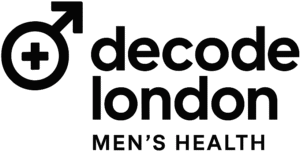Why Nutrition Needs Change as Men Age
Men’s bodies go through distinct physiological shifts across the decades—from peak muscle development in their 20s to metabolic slowdowns in their 40s and increased risk of chronic disease after 50. As these changes unfold, nutritional needs evolve too. The same meal plan that supports muscle growth in your 20s may contribute to fat gain or sluggishness in your 40s if not adjusted.
Proper nutrition at every age is about more than just maintaining a certain weight. It’s about optimizing energy levels, hormonal balance, disease prevention, and physical performance. Each stage of life introduces new challenges and goals—from building to maintaining to protecting. Understanding what your body needs now—and what it will need next—allows you to stay strong, healthy, and mentally sharp through all phases of life.
Whether you’re an active 25-year-old, a busy 40-year-old professional, or a man entering your 50s and thinking about longevity, what you eat can either fuel vitality or chip away at your health over time.
The Foundation: Nutritional Basics All Men Need
Before diving into age-specific advice, it’s essential to understand the universal principles that apply to all men, regardless of age or activity level.
- Protein: Vital for muscle maintenance, immune function, and satiety. Quality sources include lean meats, fish, eggs, dairy, legumes, and plant-based alternatives like tofu or tempeh.
- Healthy Fats: Needed for hormone production and cell function. Focus on unsaturated fats from avocados, nuts, seeds, olive oil, and fatty fish.
- Complex Carbohydrates: Your body’s primary energy source. Choose whole grains, legumes, fruits, and vegetables over refined grains and added sugars.
- Fiber: Supports digestive health, cholesterol control, and blood sugar stability. Aim for 25–35 grams per day from vegetables, whole grains, legumes, and fruits.
- Hydration: Water is critical for cellular function, digestion, nutrient transport, and metabolism. Most men need at least 3 liters of fluids per day, more if active.
- Micronutrients: Key vitamins and minerals like vitamin D, magnesium, zinc, B12, and potassium play major roles in energy production, nerve function, bone strength, and more.
These principles form the backbone of good nutrition. With that base covered, we can explore how these needs shift as the body ages.
In Your 20s: Building a Strong Foundation
Your 20s are often characterized by high energy, rapid recovery, and muscle growth potential. This is the best time to build healthy habits that can carry you through the decades. But it’s also a stage where poor food choices—fast food, skipped meals, binge drinking—can become normalized due to social life, work stress, or lack of awareness.
Nutritional Priorities:
- Muscle support: Higher protein intake (1.6–2.2 g per kg of body weight) supports training and repair. Include protein in every meal.
- Bone health: Bone mass peaks in the mid-20s. Ensure adequate calcium, magnesium, and vitamin D intake through leafy greens, dairy, or fortified alternatives.
- Energy balance: High activity levels demand more calories, but quality matters. Choose nutrient-dense options over empty calories.
- Limit alcohol and processed foods: These deplete nutrients and increase inflammation, setting the stage for long-term issues.
A well-rounded approach during your 20s not only fuels an active lifestyle but lays the groundwork for hormonal and metabolic health later on.
In Your 30s: Slowing Metabolism and Hormonal Shifts
In your 30s, testosterone levels begin to decline gradually, metabolism starts to slow, and recovery from physical activity becomes less effortless. This is when many men notice stubborn belly fat, lower energy, or greater stress—all of which are influenced by diet.
Nutritional Priorities:
- Balanced macros: Continue prioritizing protein, but begin moderating carbs and fats based on activity levels. Choose slow-digesting carbs like oats, sweet potatoes, and brown rice.
- Heart health: Begin minimizing saturated fats and sodium while increasing omega-3 intake from salmon, flaxseed, or walnuts.
- Stress reduction: Include foods rich in magnesium (pumpkin seeds, leafy greens) and B-vitamins (whole grains, eggs, lean meats) to support nervous system health.
- Digestive support: Add more fermented foods (yogurt, kefir, sauerkraut) to support gut health and immune function.
Meal prep, planning, and a more conscious relationship with food become important in this decade to avoid creeping weight gain or energy dips.
In Your 40s: Maintenance and Disease Prevention
By your 40s, the body becomes less forgiving of poor nutrition and lifestyle habits. Fatigue, blood pressure changes, prediabetes, and loss of muscle mass are more common, especially without regular physical activity and nutritional vigilance.
Nutritional Priorities:
- Insulin control: Reduce added sugars and refined carbohydrates to manage blood sugar and avoid insulin resistance. Choose low-glycemic index foods like legumes, berries, and quinoa.
- Muscle preservation: Continue eating high-quality protein with every meal and strength train regularly to combat age-related muscle loss (sarcopenia).
- Anti-inflammatory focus: Emphasize colorful vegetables, herbs, spices (like turmeric), and healthy fats to reduce systemic inflammation.
- Cholesterol and blood pressure: Reduce red meat and processed meats, increase potassium (bananas, beans, spinach), and lower sodium intake.
- Portion control: Metabolic rate slows with age, so minding portion sizes becomes critical. Focus on eating until satisfied—not stuffed.
At this stage, nutrition becomes less about performance and more about sustaining health, preventing disease, and optimizing daily function.
Navigating Supplements in Midlife
As dietary gaps become harder to fill through food alone—due to digestion, stress, or lifestyle—it may be time to consider targeted supplements. While food should always be the first source of nutrients, supplementation can play a helpful role in this decade.
Common recommendations for men in their 30s and 40s include:
- Vitamin D: Especially if sun exposure is limited; supports testosterone, immune function, and bone health.
- Magnesium: Helps regulate blood pressure, blood sugar, and supports sleep quality.
- Omega-3 fatty acids: Reduce inflammation, support brain and heart health.
- Zinc: Important for immune health and testosterone production.
- Probiotics: Support gut health and improve nutrient absorption.
Always check with a healthcare provider before starting any supplement regimen, especially if you have pre-existing conditions or take medications.
In Your 50s: Supporting Longevity and Combating Decline
The 50s often mark a more noticeable shift in physical resilience, metabolism, and hormonal balance. Testosterone continues its natural decline, lean muscle mass decreases if not actively maintained, and the risk of chronic illnesses such as heart disease, type 2 diabetes, and osteoporosis begins to rise. Nutrition now plays a pivotal role not just in how you feel day-to-day, but also in long-term disease prevention.
Nutritional Priorities:
- Muscle retention and strength: Focus on high-quality protein sources at every meal—especially breakfast, when muscle protein synthesis is lowest. Whey protein, lean meats, Greek yogurt, and legumes are excellent options. Aim for 1.2 to 2.0 grams of protein per kilogram of body weight daily.
- Calcium and vitamin D: These nutrients are vital to prevent bone loss and fractures. Dairy, fortified plant milks, leafy greens, sardines, and eggs should be staples. Supplementation might be necessary based on blood tests.
- Joint support: Incorporate omega-3 fatty acids and anti-inflammatory foods to reduce joint stiffness. Fatty fish like salmon, chia seeds, and walnuts are excellent choices. Collagen supplements and bone broth may also provide additional benefits.
- Fiber focus: A high-fiber diet supports digestion and heart health while regulating blood sugar. Whole grains, fruits with skins, legumes, and vegetables should be emphasized.
- Portion awareness and energy balance: Caloric needs decline in the 50s, but nutrient needs stay high. This means choosing more nutrient-dense foods over high-calorie, low-nutrient options. Avoid excess saturated fats and sugar, which contribute to inflammation and cardiovascular strain.
Staying consistent with strength training, daily walking, and managing portion sizes is crucial to maintaining independence, vitality, and muscle mass.
In Your 60s and Beyond: Eating for Vitality and Cognitive Health
Entering your 60s, the goals of nutrition expand to include preserving cognitive function, protecting mobility, supporting immune resilience, and enhancing quality of life. Appetite may decline due to reduced activity or medications, but nutrient needs remain high. Every bite counts.
Nutritional Priorities:
- Brain health: Nutrients like omega-3s, choline, and antioxidants (vitamins C, E, and polyphenols) play protective roles in brain aging. Include foods such as blueberries, dark leafy greens, turmeric, olive oil, and fish.
- Preventing muscle wasting: Sarcopenia accelerates past age 60 without intervention. Continue prioritizing protein (up to 2.0 g/kg/day), strength training, and mobility work.
- Immune support: Ensure adequate intake of zinc, selenium, and vitamins A, C, and D through a colorful diet and, if needed, supplementation.
- Ease of digestion: Smaller, more frequent meals can improve absorption and prevent bloating. Opt for softer protein sources like eggs, smoothies, lentils, and baked fish if chewing becomes difficult.
- Hydration: Thirst perception declines with age. Older men should drink water throughout the day and incorporate hydrating foods like watermelon, cucumber, and soups.
Food also becomes a tool for maintaining social connection and mental well-being in this stage. Cooking with family, sharing meals with friends, and enjoying a variety of flavors all support emotional health and reduce the risk of isolation.
Tailoring Your Diet to Activity and Lifestyle
It’s not just age that determines nutritional needs—lifestyle, stress levels, and physical activity also play major roles. An active man in his 60s who runs marathons may require more energy and carbs than a sedentary 35-year-old with a desk job. That’s why learning to listen to your body is just as important as following guidelines.
Some key lifestyle adjustments that influence dietary choices:
- Busy professionals may benefit from batch cooking, portable high-protein snacks (like hard-boiled eggs or protein bars), and staying hydrated with water-rich foods like fruits and soups.
- Shift workers or night owls should focus on stabilizing energy through low-glycemic carbs and avoiding heavy meals right before bed to protect circadian rhythm and digestion.
- Highly active men (e.g., athletes or regular lifters) need to fine-tune carb timing around workouts and ensure proper recovery fuel post-exercise.
Adaptability is key. A man’s body responds best when nutrition flexes with the seasons of life—not rigid rules.
Common Pitfalls and How to Avoid Them
Many men—regardless of age—fall into nutritional traps that seem minor but compound over time into energy crashes, weight gain, or nutrient deficiencies. Awareness is the first step to overcoming these.
Skipping breakfast: This often leads to overconsumption later in the day and slower metabolism. Instead, aim for a protein-rich morning meal to stabilize energy.
Over-reliance on convenience foods: Highly processed snacks, energy drinks, and fast food might save time but offer little in return nutritionally. Keep healthy options on hand—like nuts, fruit, and boiled eggs.
Underhydrating: Coffee and soda don’t count toward your hydration goals. Keep a water bottle with you and start each day with a full glass of water.
Neglecting fiber: A low-fiber diet leads to poor digestion, cholesterol issues, and sluggish metabolism. Gradually increase fiber from whole foods and support gut health with probiotics.
Too much red meat and too few vegetables: Red meat isn’t inherently bad, but should be balanced with plenty of vegetables, legumes, and plant proteins to ensure diverse nutrient intake and protect cardiovascular health.
The Role of Mindful Eating and Emotional Wellness
As men age, the relationship with food often becomes emotional—used to reward, distract, or cope. Eating out of boredom, stress, or habit can lead to overeating or poor food choices, regardless of how health-conscious someone is.
Mindful eating is the antidote. It involves slowing down, chewing thoroughly, tuning into hunger and fullness cues, and appreciating the sensory experience of food. It also means making intentional decisions rather than reacting impulsively to cravings or convenience.
Practical ways to introduce mindful eating:
- Sit down for meals instead of eating on the go
- Avoid distractions like phones or TV while eating
- Chew slowly and taste each bite
- Pause midway through a meal to assess fullness
- Eat until satisfied, not stuffed
Pairing mindful eating with positive food rituals—like cooking with loved ones, growing your own herbs, or exploring new recipes—can improve both physical and emotional health.
Customizing Your Nutritional Strategy for the Long Run
Nutrition is never one-size-fits-all. Your health status, goals, preferences, budget, and schedule all affect your optimal eating plan. Instead of obsessing over strict rules or “perfect” meals, focus on consistency, balance, and progress.
Building your personal strategy might involve:
- Meal prepping twice per week
- Keeping a food journal to spot trends and triggers
- Working with a dietitian or health coach for accountability
- Experimenting with different eating patterns (e.g., time-restricted eating, Mediterranean diet, plant-forward meals)
- Checking biomarkers through blood tests to track deficiencies or inflammation
The more you understand your own body’s response to food, the more empowered you are to fuel it effectively through every decade of life.
Final Word
Your body is always changing, and your nutrition should change with it. From building strong muscle in your 20s to supporting heart and brain health in your 60s, each phase of life demands a tailored, mindful approach to food.
The best part? You don’t need to be perfect—you just need to be consistent. When you prioritize real food, listen to your body, and make adjustments along the way, you build a foundation for energy, strength, and vitality that can last a lifetime.
Fuel wisely. Eat with purpose. And remember: your future health is being built today—one bite at a time.










